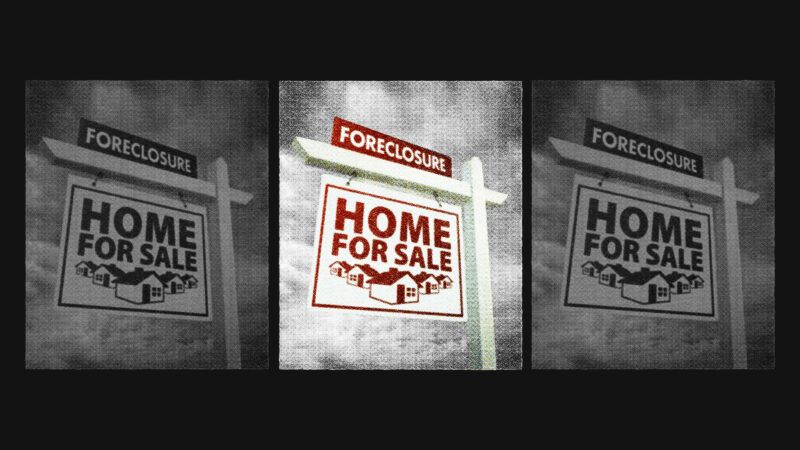A 93-Year-Old Woman Couldn't Pay Her $2,300 Tax Bill. The Government Sold Her Home and Kept the Money.
"This is very bad for property rights."

Whether or not Geraldine Tyler will live to see the resolution of her case remains unclear.
The 93-year-old left her Minneapolis condominium in 2010 after a nearby shooting and a disturbing encounter left her uneasy. But she was unable to finance both her new apartment and the property tax on her erstwhile condo, accruing $2,300 in debt.
Over the course of the next five years, the government raised that debt by over 550 percent, tacking on almost $13,000 in additional penalties, fines, and interest. And when Tyler couldn't pay that, it seized her property, sold it for $40,000—and kept the profit.
Last month, a federal appeals court ruled that was OK.
"Tyler does not argue that the county lacked lawful authority to foreclose on her condominium to satisfy her delinquent tax debt," wrote Judge Steven Colloton of the U.S. Court of Appeals for the 8th Circuit. "Rather, Tyler argues that the county's retention of the surplus equity—the amount that exceeded her $15,000 tax debt—is an unconstitutional taking."
Put more plainly, Tyler is not contesting that she failed to pay her property taxes, nor is she trying to evade responsibility for doing so. Her suit doesn't seek the full $40,000 value of the condo but rather the excess proceeds that the government made from the sale of her property.
The court's conclusion: She has no right to that cash.
"It's pretty shocking," Christina Martin, an attorney representing Tyler with Pacific Legal Foundation, tells Reason. "This is very bad for property rights."
Tyler's situation may sound absurd. Yet she is not alone. Although most states' tax-foreclosure systems don't keep the profits from such seizures, there are about a dozen that do, sometimes turning homeowners into the homeless over a forgotten tax bill.
Consider the case of Bennie Coleman, who, at 76 years old, was tossed from his Washington, D.C., home by the U.S. Marshal Service over $134 in unpaid property taxes. The residence was valued at $197,000, all of which initially went into government coffers. Coleman reportedly spent months living on the front porch, sleeping on a lawn chair, suffering from dementia, and under the impression that he had locked himself out of his home.
"I see this all the time. Most people don't know, they don't understand what's going on," says Martin. "And no matter what, the government should not be able to take everything from you just because you owe them money….What I've seen in other cases like this is most people who lose their property this way are suffering from medical issues, or they're elderly. It also tends to affect the poor."
In other words, the tactic is often used against those who stand to lose the most from it. Though Tyler doesn't have any severe medical issues, she is not far off from her 100th birthday. "She said to me, 'How much longer is this going to take?'" Martin adds, noting that they are requesting a rehearing and will consider taking it up to the U.S. Supreme Court if that fails. "'I haven't got forever.'"
Tyler's experience is somewhat evocative of civil forfeiture, the process which allows the government to seize assets from people who police may suspect of committing a crime. Law enforcement can take wads of cash, people's life savings, vehicles, personal possessions, and more—often without criminal charges, much less a conviction. But her case takes it a step further, because this was not a punishment. It was a taking, one for which Tyler no longer has any recourse.
"[Let's say] you owe [the government] $15,000, so they seize all your mutual funds and then keep the change. How is this any different?" asks Martin. "For them to be able to do that is shocking, and it ought to worry people, because if they can do this to your house, what stops them from doing this to your mutual funds, your bank account, your car. You name it."



Show Comments (74)